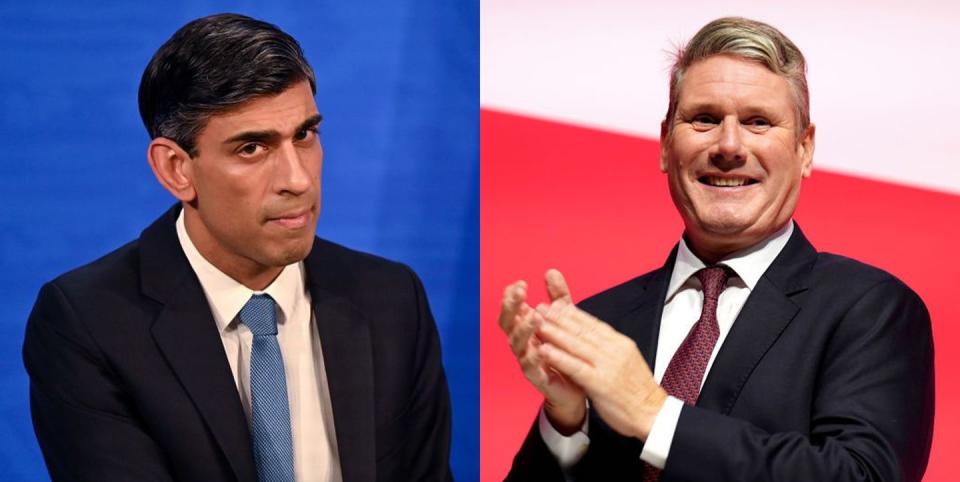All political parties should be trying harder to engage women - after all, we could sway the vote

Given the (arguably disastrous) fourteen years of Tory rule that we've all just endured (see: the cost of living crisis, NHS wait times and abysmally low conviction rates for rape and sexual assault – just for starters), it's no surprise that the upcoming election is generating a lot of buzz. Many are ready for change, with Labour looking the likely favourites to win, but that doesn't mean the Conservatives, Lib Dems, Greens and the Reform party aren't also striving to secure votes.
But, it'd seem, according to new data from The Fawcett Society and Centenary Action, shared exclusively with Cosmopolitan, women in particular are feeling a disconnect right now when it comes to the political landscape, with just 37% saying they feel the election campaign is covering issues important to them.
In addition to this, almost half of the 1,124 women surveyed (46%) felt that parties didn't care about their votes – when, given that 23% are still undecided about who they're going to vote for (vs 13% of men), it seems like a real missed opportunity for those hoping to make Number 10 their new HQ.
The research comes about as more than 120 female-focussed organisations (ranging from Women's Aid to The WI and Disability Rights UK) are gearing up to launch the #SheVotes24 campaign, encouraging all parties to answer a series of queries relating to how they'd specifically improve the lives of women.

Questions include 'How will you close the gender pay gap?' (as a reminder: in 2023, women earned £574 less than men per month on average), 'What will you do to tackle misogyny and sexism in schools, on the streets and online?' and pressing parties on how they plan to tackle a lack of funding in women's healthcare, as well as racial inequalities in the medical space.
Speaking about the campaign, Chief Executive of the Fawcett Society, Jemima Olchawski, said, "Any party that wants to win the upcoming general election needs to put the issues that women care about at the heart of their platform. So far, this election campaign has seen little focus from the major parties on women, nor the issues which disproportionately impact us."
Olchawski adds that the unfathomable costs of childcare also needs real commitment from anyone in power, along with encouraging workplaces to offer better flexibility alongside equal pay. "Representation in halls of power is critical, and the pace of change is too slow. We need to see all parties commit to policies that will serve women in all of our diversity."
Helen Pankhurst, Convener of Centenary Action Group adds that the data proves women feel they're going unheard by all those in the running to be the next party in power.
"It's clear from the polling that women do not feel their issues are being raised or their voices are being heard," Pankhurst notes. "Despite being 51% of the electorate, Westminster is still dominated by men in representation, processes, and policies over a century after securing the right to vote.
"This election, only 31% of candidates are women, meaning we will continue to be unrepresented in the next parliament. We demand change. Women's voices and priorities must be heard in this election and must be central under the next government."
To follow Cosmopolitan's General Election coverage click here
You Might Also Like

 Yahoo News
Yahoo News 
